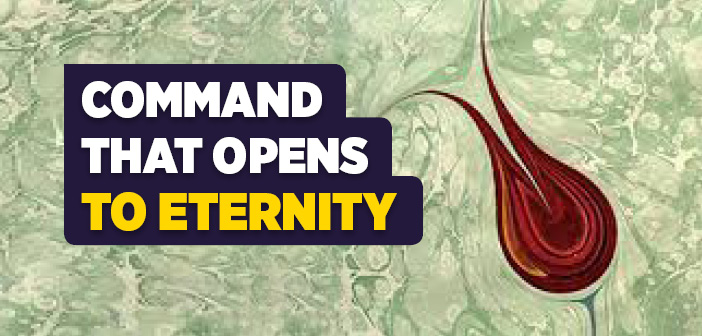What is the most decent style?
In our times, even employees who are to represent a company undergo special training. They are taught all the steps of how to dress and speak. Likewise, believers who are to represent and convey the truths of Islam must follow the Prophet’s (SAW) Sunnah and invite people with a smiling face, the most delicate and elegant of words and most importantly, with an admirable character and upright direction.
While on the subject, let us touch on another matter:
For Muslim employers, speaking to their employees in a humble and genuine way in the Islamic style, will be a great way to make tabligh.
In a letter written to his governors, Ali (RA) says:
“Do not look upon people like a wolf stares at a herd! Nurture love, mercy and goodness towards them in your heart! For all humans are either your brothers in religion or your equal in species.
People can make mistakes or fall on hard times. Raise those who have fallen; and if you want Allah to forgive you, then forgive people, overlook their mistakes and pardon them! Do not ever be ungrateful towards Allah! Do not ever feel any regret over forgiving! And do not ever rejoice over punishing!”
The verse below beautifully illustrates just how tabligh should be made:
“Invite to the way of your Lord with wisdom and good teaching, and argue with them in a way that is best. Your Lord most certainly knows who strayed from His way, and those who are rightly guided.” (Al-Nahl, 16:125)
This means that tabligh must carry a charm that resembles a bouquet of flowers or rivers that flow gracefully.
Making tabligh in an impolite manner, using a coercive, reproving and unnerving tone is, moreover, forbidden. The Prophet (SAW) has said:
“Make things easy for people, not difficult. Relieve people, do not repel them.” (Bukhari, Ilm, 11, Adab, 80)
In his Fihi Ma Fih, Mawlana Rumi draws on the following story to emphasise the elegance tabligh requires:
It is narrated that when they were still children, our Prophet’s (SAW) grandsons Hasan (RA) and Husayn (RA) saw a person take ablution in a wrong way. They wished to show the man how it is supposed to be done, in the best manner possible.
They went next to the man and one of them said:
“Uncle! My brother claims I make mistakes while taking ablution. Allow both of us to take ablution in your presence and see which one of us is doing it in the proper way as commanded by our religion.”
So, they both took ablution in the man’s presence. Seeing each of the children take ablution perfectly, the man said:
“Kids! It appears as though your ablution is perfectly in line with Islamic law but all the problem is with mine!”
In fact, when pointing to the faults of his companions, the Prophet (SAW) would sometimes say:
“What is wrong with me that I see some of you commit such mistakes?” In so doing, instead of directly pointing the finger at others, he would ascribe a mistaken vision to himself. He would say:
“Or am I seeing things?” (See, Bukhari, Manaqib, 25; Muslim, Salat, 119)
Nonetheless, in this case, we must recall the two complementary attributes of prophets, namely tabshir (to give glad tidings) and indhar (to warn). Many of the Qur’an’s verses that define tabligh contain the expressions ‘giving believers the good news of paradise while threatening disbelievers with hell.’
This means that;
Expressing the truth also comes with the need to warn people of the bad outcome which taking the wrong path will bring.
Depending on the situation, tabligh must certainly come with a determination and insistence to avert a person from a mistake, and a kind of warning and cautionary tone that could make a person feel the gravity of his action.
Finding the perfect balance, however, requires prudence.
Source: BEING A GUIDING LIGHT, Osman Nuri Topbas, Erkam Publications
 Source: BEING A GUIDING LIGHT, Osman Nuri Topbas, Erkam Publications
Source: BEING A GUIDING LIGHT, Osman Nuri Topbas, Erkam Publications




